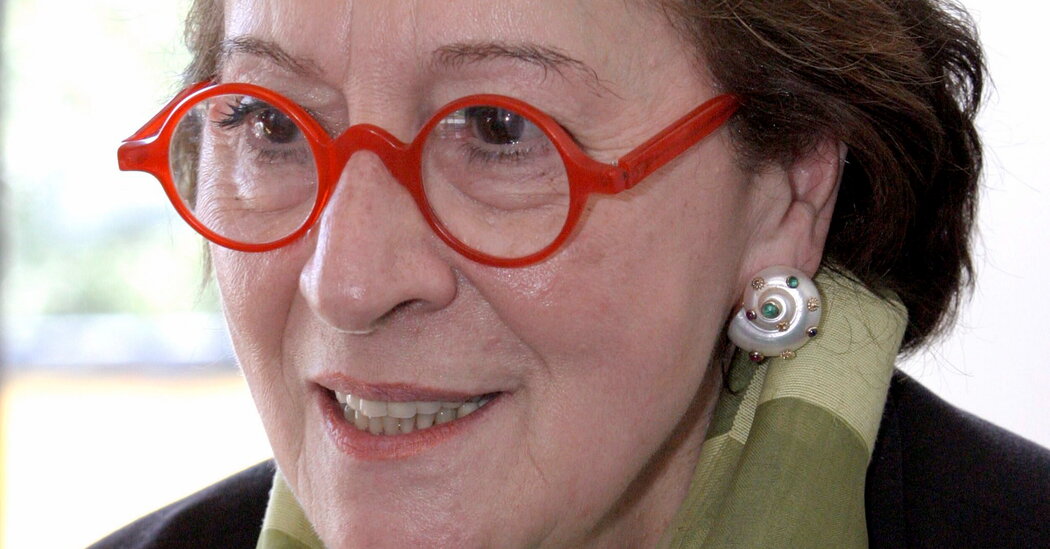Jeanette Wagner, Who Globalized the Estée Lauder Brand, Dies at 92


Jeanette Sarkisian Wagner, both a merchant and a diplomat for Estée Lauder, who popularized the brand’s high-end lipsticks and perfumes among the women of the Soviet Union and China during the rising globalization and free trade of the 1980s and ’90s, died on Feb. 26 in Manhattan. She was 92.
The death was confirmed by her niece, Nicole Vartanian.
Mrs. Wagner was president of Estée Lauder’s international operations from 1986 to 1998, a period when the division was transformed from a small and relatively unprofitable arm of the New York-based company to one that accounted for roughly half of its multibillion dollar business.
“We were partners in the creation of Estée Lauder International,” Leonard Lauder, the company’s chief executive in those years, said in a phone interview. “We worked together hand in glove and we understood each other absolutely.”
With the Soviet Union’s economy partly opening under its leader Mikhail S. Gorbachev, Estée Lauder launched its first Russian location roughly a week after the fall of the Berlin Wall in November 1989, beating out McDonald’s by two months. The Moscow branch was steps away from the Kremlin and the Red Square.
“We have what would be the equivalent of a Fifth Avenue or Madison Avenue address,” Mrs. Wagner told the trade journal Management Review in 1990.
On opening day, the police erected barricades and shut down a subway entrance to accommodate a line of hundreds of Soviet women, some of them the wives of major figures in the Communist Party. They bought products like Tuscany, a cologne that cost 120 rubles — more than half the average Soviet worker’s monthly salary.
During a single day shortly after opening, the store rang up 210,000 rubles in sales.
Ms. Wagner ensured that every woman who stood in line on opening day had the chance to buy something. She dissuaded Soviet politicians from taking armloads of merchandise for themselves. She helped strike a complicated ownership deal with the Soviet government, and she helped oversee the training of the store’s Russian workers, for whom personalized customer service was unfamiliar.
“The whole concept of being able to advise and give people expertise is completely different,” Mrs. Wagner told Management Review. “They have not been in a demand-supply situation.”
She was developing a strategy for how to enter a new market: establish free-standing stores to control how the brand is introduced; nurture personal relationships to understand a new market; and overcome barriers to trade.
She and Mr. Lauder collaborated on another important expansion in the early 1990s — to China. Over the course of her career, Mrs. Wagner launched marketing campaigns in more than 100 countries.
In an unexpected reversal, the place where Mrs. Wagner made one of her chief international breakthroughs for the company is now the site of a major retreat. Earlier this month, Estée Lauder announced that it was ceasing all commercial activity in Russia, including closing all stores that it owns and operates, in response to the war in Ukraine.
“We were lucky in the era we were in,” Mr. Lauder said, adding of Mrs. Wagner, “She was having more fun that you could ever imagine.”
Jeannette Sarkisian was born on July 2, 1929, in Chicago to Souren and Nazely (Norsigian) Sarkisian, refugees from the Armenian genocide. Her family ran two small grocery stores, one in Chicago and the other in suburban Evanston.
Jeanette helped out at the stores through her teenage years, and she recalled later with pride how immaculate they were kept, with all the cans carefully aligned to face in the same direction, and how her father had instructed her to decline tips when she made deliveries that had been advertised as free of charge.
She graduated with a bachelor’s degree from Northwestern University, where she studied English, and in the 1980s she went back to school, graduating from Harvard Business School’s Advanced Management Program.
Before Estée Lauder, Mrs. Wagner worked in journalism, including as the first female senior editor of The Saturday Evening Post and as the editor in chief of the Hearst Corporation’s international magazines.
After stepping down from running Estée Lauder’s international division in 1998, she served as the company’s vice chairwoman and on the boards of many nonprofits, including the Library of America.
Her husband, Paul Wagner, whom she married in 1965, died in 2015. In addition to Ms. Vartanian, she is survived by two stepchildren, Paul and Paula Wagner.
Sally Susman, Estée Lauder’s chief of communications during Mrs. Wagner’s time as vice chairwoman, recalled in a phone interview Mrs. Wagner’s extravagant gestures of respect to foreign business partners.
When a delegation of Chinese government officials, some of whom Mrs. Wagner knew as acquaintances, visited New York on other business and reached out to her as a courtesy, she sent to each of their hotel rooms a package with a dinner invitation, Estée Lauder products and tourist recommendations.
“She was the queen of delivered by hand,” Ms. Susman said.





